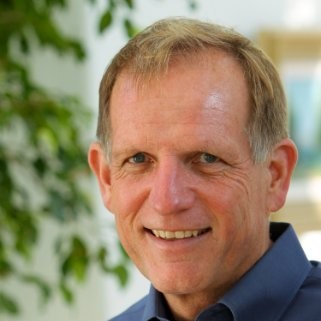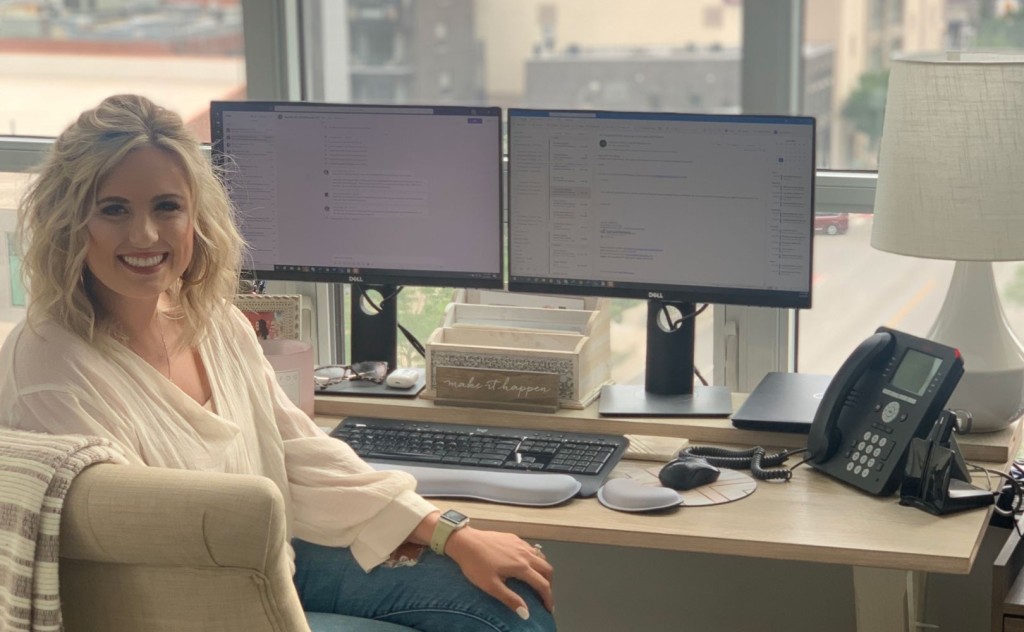Why Healthcare Recruiters Are the Unsung Heroes Who Deserve Cheers
For the last four years, Jacey Terrette (pictured above), an advanced practice recruiter for LocumTenens.com, has been placing nurse practitioners and physician assistants with hospitals in 25 states. Typically, she’s filling 8 to 10 reqs a week.
But in early March, COVID-19 erupted in New York City, and Jacey and other team members were tackling 8 to 10 reqs every day. And her clients needed people in 48 hours, not 30, 60, or 90 days.
To get it done, Jacey started in at 8 every morning and worked until 10:30, 11 at night, every day, including the weekends. She knew that lives were at stake.
There have been many unsung heroes — from grocery store clerks to delivery drivers — getting the rest of us through the COVID-19 slowdowns and lockdowns. But healthcare recruiters have also done vital work, finding talent at a scale and pace they’ve never tackled before. And they’ve done so without any clamor or acclamation.
So, we’re here to blazon the trumpets and beat the drum for healthcare recruiters everywhere.
Read on to learn how Jacey and Daniela Lotito, the director of healthcare recruiting at New York City–based Atlas Search — as well as countless other healthcare recruiters around the globe — have had an important if unheralded role fighting COVID-19:
Time-to-fill for healthcare went from three months to three days
Jacey’s staffing agency is part of Georgia-based Jackson Healthcare. She recruits nurse practitioners (NPs) and physician assistants (PAs) for hospital medicine, critical care (ICU), neonatal (NICU), and pediatric specialties.
During pre-COVID times, Jacey was typically filling 10 reqs a week. Once the pandemic hit, she was doing that number nearly every day. And her clients needed help in two or three days, not in two or three months, as they normally did.
“For us as recruiters,” she says, “there was no such thing as mornings, afternoons, typical workdays. It was, ‘Hey, I need five providers starting in two days. Send me who you have.’”
Daniela (pictured above) works for Atlas Search, which does permanent direct hiring and temporary staffing across a variety of industries. She manages a team that does temp recruiting for nursing, social work, nonclinical, and allied health.
At Atlas, Daniela and her team fielded a request from one of the major New York City hospital systems for more than 500 registered nurses to work across the city. “We had to navigate quickly,” she says, “interviewing candidates, vetting them, qualifying them, making sure they had the proper credentials, and getting them to work as quickly as possible.”
Recruiters quickly shifted their focus from their own silos to where the immediate needs were
After COVID-19 reached the United States, both Jacey and Daniela saw skyrocketing demand for help in the ICUs and emergency departments — areas for which they’re responsible.
They each started sourcing with their own database of known providers. They bolstered that effort by posting positions on LinkedIn and other job boards. And then colleagues whose workloads had lightened up moved in to help. At Atlas, for example, Daniela’s team absorbed colleagues who normally place people in full-time positions.
These impromptu collaborations were critical to ongoing success, allowing teams to handle the overwhelming number of candidates who had to be vetted and then matched to an appropriate opening. “Combining our two teams,” Daniela says, “both direct hire and our temp division, allowed us to find as many candidates as we could and really increase our productivity.”
Healthcare recruiters adapted to guidelines that changed every day
Healthcare recruiting during COVID-19 has been a lot like Calvinball, the game developed by the titular characters in the cartoon strip “Calvin & Hobbes,” in which, presciently, the players always wear masks, the rules are made up on the fly, and there is only one permanent rule: “Players cannot play it the same way twice.”
A critical part of temporary staffing for healthcare is ensuring that providers are not only suited for a role, but licensed and credentialed. Every state has its own guidelines and requirements, and many of these began changing rapidly in response to the COVID-19 reality.
“Normal credentialing at a lot of these hospitals is anywhere between 45 and 60 days,” Jacey says, “and we were doing it in 48 hours.”
Recruiters also had to confront challenges that popped up whack-a-mole style with travel (what do you mean there are no flights?), housing, physical exams, and even fingerprinting.
Recruiters provided a sympathetic ear for healthcare workers after placing them
For Jacey and Daniela, the job doesn’t end when they place a provider with a client. They are constantly checking in to see how people are doing and to lend emotional support.
It turns out that sympathetic listening isn’t for the faint of heart.
“There were some days, I’m not going to lie,” Jacey says, “where I would call to check in on the providers and they were physically and mentally exhausted. In turn, it made me physically and mentally exhausted.”
Jacey would check in with them on their first and last days and every two or three days in between. “On many days, I felt that my job wasn’t solely being a recruiter,” Jacey says, “but more of a listening ear for our providers. At times, other than those that were on the ground with them, we were the only ones that understood what they were doing and what they were going through.”
Final thoughts: Stories from the front line inspire those who help get them there
Ultimately, the stories that Jacey and Daniela heard — courageous, compassionate, collegial — were the thing that kept them moving forward.
“We’ve heard such incredible stories throughout this,” Daniela says, “and that really changes your perspective on who we’re impacting, who we’re helping, what we’re doing, and how it’s truly making a difference.”
Daniela remembers a nurse who had contracted COVID-19 herself and, after she’d recovered, was placed in a New York City hospital. She told Daniela about a patient who had coded twice but she managed to save — with things she had taught herself.
“I have had a different quarantine experience than a lot of other people in the country,” Jacey says. “A lot of people have been bored out of their minds while I’ve been beyond busy.
“Honestly,” she adds, “it’s been very positive and extremely uplifting to know that this is what we do for a living.”
To receive blog posts like this one straight in your inbox, subscribe to the blog newsletter.
Related articles




